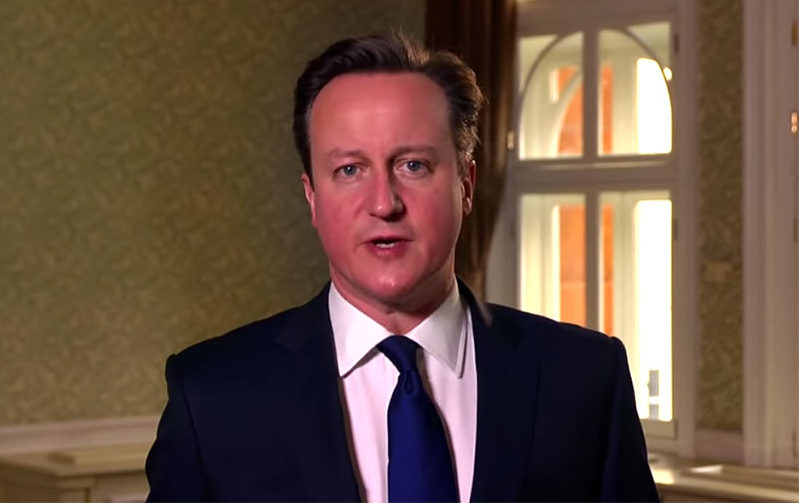
United Kingdom Prime Minister David Cameron issued a message to the British people on Easter Sunday declaring that "Britain is still a Christian country."
According to Rosa Prince of the Telegraph, the prime minister used his Easter message to urge the British to "speak out" over the persecution of Christians around the world. His message was posted on YouTube.
"Yes, we are a nation that embraces, welcomes and accepts all faiths and none but we are still a Christian country," Cameron said. "And as a Christian country, our responsibilities don't end there."
Cameron added that Britain should stand up for Christians around the world, particularly those facing persecution. Prince reported that his message came days after 150 Christians were massacred at a university in Kenya.
"It is truly shocking to know that in 2015 there are still Christians being threatened, tortured, even killed, because of their faith from Egypt to Nigeria, Libya to North Korea," Cameron said. "Across the Middle East, Christians have been hounded out of their homes, forced to flee from village to village, many of them forced to renounce their faith or be brutally murdered."
Cameron contended that his country stands with "all those brave Christians in Iraq and Syria who are practicing their faith." According to the Telegraph, he has previously suggested that atheists failed to grasp the "moral code" that religion provided.
"Across Britain, Christians don't just talk about 'loving thy neighbor,' they live it out... in faith schools, in prisons, in community groups," Cameron said. "It's for all these reasons that we should feel proud to say, 'This is a Christian country.'"
The prime minister argued that the church "is not just a collection of beautiful old buildings."
"It is a living, active force doing great works across our country," Cameron said.
According to Paul Vale of the Huffington Post, Cameron also praised the church (particularly the Church of England) as a "living active force doing great works" for the poor and homeless. However, he has faced criticism from the Archbishop of Canterbury, who has opposed certain welfare reforms that his Conservative-led government has proposed.
"When people are homeless, the Church is there with hot meals and shelter," Cameron said. "When people are addicted or in debt; when people are suffering, or grieving - the Church is there."
Vale reported that Cameron's severely disabled son, Ivan, died in 2009. Based on his personal experience, Cameron said that "from the most difficult times in my own life, that the kindness of the church can be a huge comfort."
Other members of the British government have issued messages on Easter as well. Although both are self-described non-believers according to Prince, Liberal Democrat Deputy Prime Minister Nick Clegg and Labor's Ed Miliband also wished the British public a happy Easter.
"In the midst of the Easter celebrations our hearts go out to those who face difficult times both overseas and closer to home," Miliband, who has a Jewish background, wrote on Facebook. "My thoughts are particularly with Christians in Syria, Iraq and other countries where the church suffers terrible persecution."
"The values that Jesus lived his live by, compassion, humility, forgiveness, resonate with people of all faiths and none," Clegg, a self-described atheist, said in his message on YouTube. "It's why so many people, both Christian and not, use the weeks before Easter, the 40 days of Lent, to take stock of what is truly important to them and their families."
According to Prince, even Nigel Farage, leader of the UK Independence Party, sent out an Easter message. Farage has previously stated that he believes in God, although he admitted to being a "lapsed" Anglican who does not regularly attend church.
"Happy Easter to all," Farage wrote on Twitter. "I hope you have a restful and enjoyable day."






